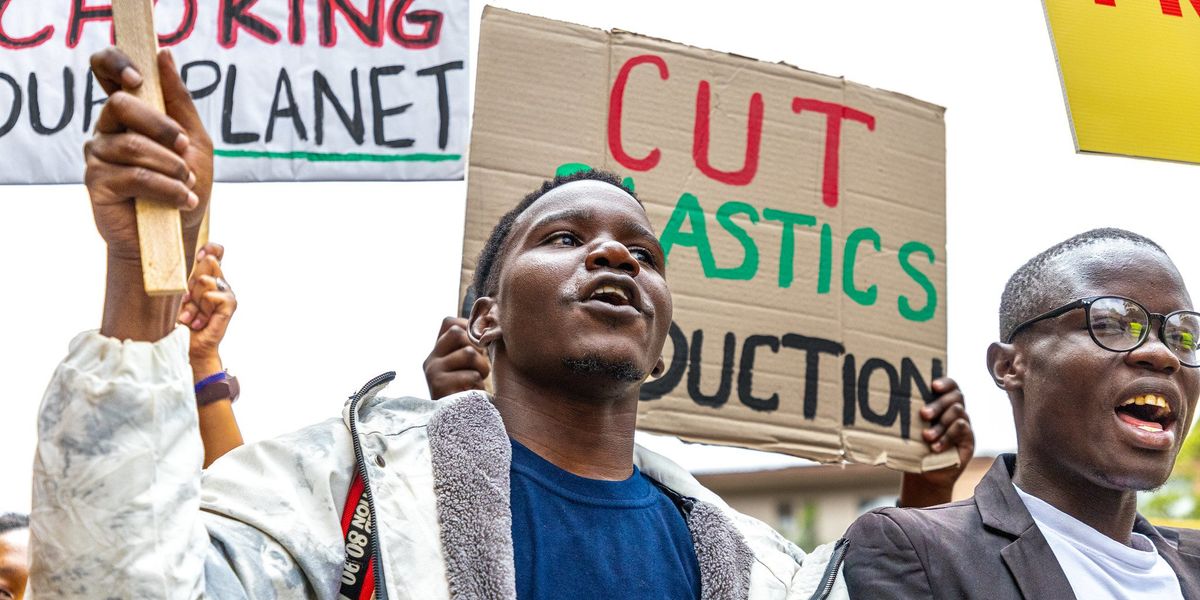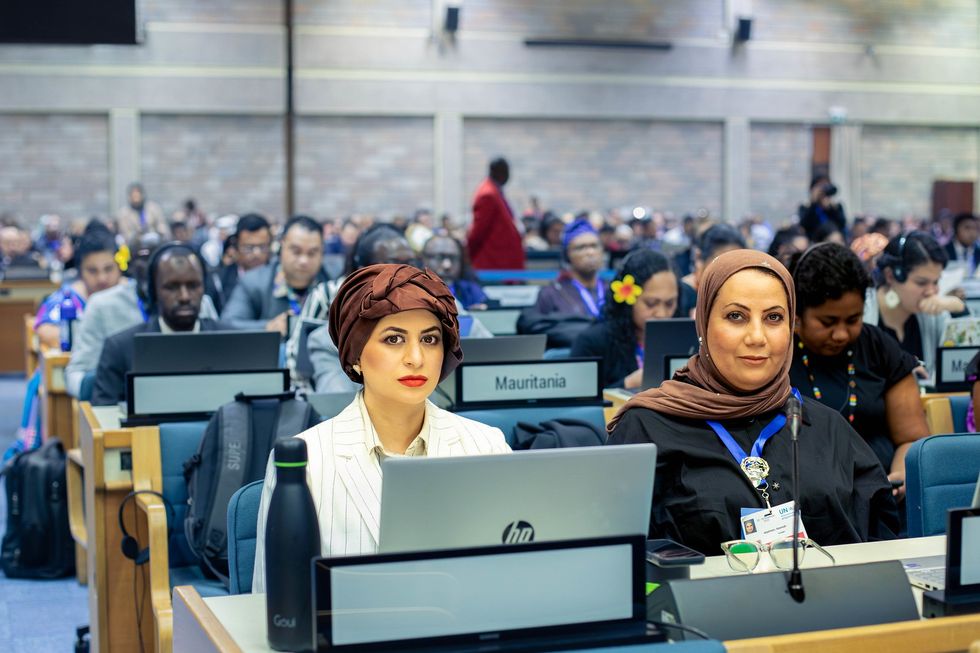
“Plastic will overwhelm us:” Scientists say health should be the core of global plastic treaty
United Nations’ draft treaty pays “lip service” to the known science, according to the group of international scientists who drafted an alternative health-focused treaty.
More than 20 international scientists put forth a plan today to encourage world leaders to put human health at the center of global plastic treaty negotiations taking place this week in Nairobi, Kenya.
The plan, dubbed the Health Scientists' Global Plastic Treaty by its proponents, comes as negotiators from about 175 countries — along with industry representatives, environmentalists and others — meet through Nov. 19 to advance a treaty to end global plastic pollution. The Nairobi gathering is the third of five such meetings. The plan is to complete negotiations by the end of 2024 and have the United Nations Environment Program (UNEP) develop the first international treaty tackling plastic on land and in bodies of water.
The Health Scientists’ Global Plastic Treaty was led by the Plastic Health Council — a group of scientists that research the human health impacts of plastics. Pete Myers, one of the signees and members of the Plastic Health Council, is the chief scientist at Environmental Health Sciences, which publishes EHN.org. The alternative treaty outlines both short-term and long-term goals that would ensure a health-protective global treaty.
Short-term goals include:
- Stopping any consideration of chemical recycling
- Eliminating subsidies to plastic manufacturers
- Reducing single use plastic production by 50% by 2035
- Reducing virgin plastic production by 70% by 2024
- Banning the sale of all products with unnecessary plastic by 2030.
Long-term goals include stopping use of micro-and nano-plastics except in medical settings, eliminating all chemicals of concern in plastics and funding safe, sustainable plastic replacements.
“We desperately need a global plastics treaty that uses the irrefutable evidence from the litany of peer-reviewed research reports as a catalyst for real action,” Sian Sutherland, co-founder of A Plastic Planet and the Plastic Health Council, said in a statement. “What will it take for global policymakers to resist the intense lobbying from big oil and mandate safer materials and chemicals that do not infect our planet and our children?”

Delegates at the plastic treaty negotiations in Nairobi.
Credit: UNEP
Last September, UNEP released a “Zero Draft” of a potential treaty agreement, which does include some proposals to limit or ban some concerning plastic chemicals. The scientist’s treaty released today called the Zero Draft “well-intentioned” but that it “falls far short of what is needed to ensure the health of humans, wildlife and ecosystems.”
Whether — and how much — the treaty should regulate the chemicals in plastic production is a point of contention. Thousands of chemicals found in plastics — such as PCBs, phthalates, BPA and PFAS — are linked to health effects in humans, from the immune system to the brain to the endocrine system. Recent research of 1,500 plastic chemicals found fewer than 30% have been tested for human health impacts.
Related: Pete Myers' discusses the "Health Scientists' Global Plastic Treaty"
“Most people assume that materials are thoroughly tested before they are put on the market, but for plastics this is not the case,” the scientists wrote in their draft treaty. “Plastics have largely escaped regulatory scrutiny for over 100 years.”
Countries and other negotiators also remain at odds over whether there should be production caps or more of a focus on recycling and a plastic “circular economy.” A treaty that limits production would impact oil, gas and petrochemical interests.
While only about 9% of plastic is recycled, recycling plastics can release toxic chemical additives.
Promoting chemical recycling “would be the worst outcome the Treaty could endorse for managing plastic waste,” the scientists wrote.
“Plastic recycling has been touted as a solution to the plastics pollution crisis, but toxic chemicals in plastics complicate their reuse and disposal and hinder plastic recycling,” said Bethanie Carney Almroth, a signee to the Health Scientists’ Global Plastics Treaty and a researcher at the University of Gothenburg in Göteborg, Sweden, in a statement.
“Numerous studies show that hazardous chemicals can accumulate even in relatively close-loop plastic recycling systems,” she added. “We need to rapidly phase-out plastic chemicals that can cause harm to human health and the environment.”
The last plastic treaty meeting was in June and was hampered by delays and procedural debates, largely from countries that profit from fossil fuels — which are used to make most plastics — and plastic production such as China, India, Saudi Arabia and Iran.
Prior to the Nairobi meeting, Saudi Arabia announced a coalition with Russia, Iran, Cuba, China and Bahrain called the Global Coalition for Plastics Sustainability, that will focus on plastic waste rather than production limits, according to Reuters.
On the other side of negotiations, more than 60 countries previously banded together to form the High Ambition Coalition with the goal of ending plastic pollution by 2040, with slowing production part of the solution.
The U.S. is not part of either coalition and has been criticized for initially favoring national commitments rather than legally binding global agreements. However, there are signals of a slight shift, as recent State Department statements have nodded to national plans being part of “universal obligations.”
The treaty is urgent as plastic production is on track to triple by 2060, an unsafe level for human health and the environment, according to an international panel of scientists.
“We must choose,” Myers said in a statement. “Will we smother the Earth and ourselves with toxic plastics? Or do we have the courage and foresight to stop the onslaught?”
See the full Health Scientists’ Global Plastic Treaty and follow treaty negotiation happenings at the UN Environment Programme page.














